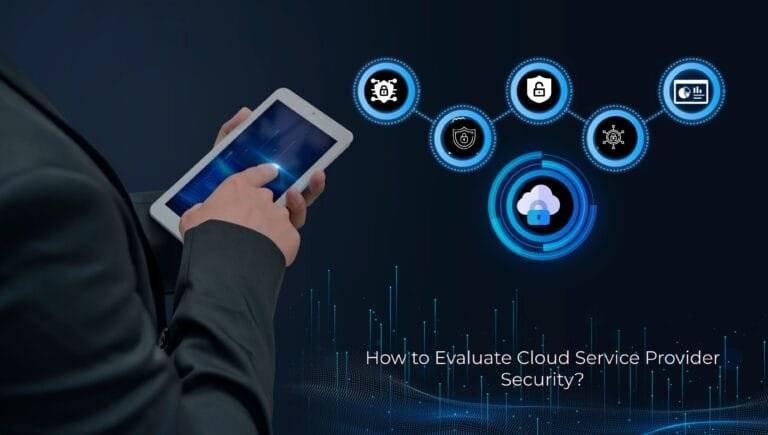Why Is It Important to Learn About Cybersecurity?
Understanding cybersecurity is essential in the connected world of today, as technology affects almost every part of our lives. Cybersecurity refers to the methods, tools, and procedures used to guard against illegal access, cyberattacks, and other breaches of security on computers, networks, and data. It is impossible to overstate how crucial it is to understand cybersecurity because it affects not just businesses and individuals but also national security.
Protection from Cyber Threats
The threat of cyberattacks is very significant in today’s digital world, thus people and organizations must comprehend cybersecurity best practices and put them into practice. This section explores the different aspects of cyber threat protection, highlighting the significance of cybersecurity knowledge.
Data Breaches
- Understanding the Threat: Among the most common and dangerous cyber threats are data leaks. Hackers breach systems to obtain sensitive data without authorization, compromising the security and privacy of both people and companies.
- Impact on Individuals: A data breach can have serious consequences for individuals, including identity theft and financial losses. Cybercriminals frequently use stolen data for fraudulent purposes, leaving victims to deal with the fallout of their data being compromised.
- Countermeasures: Acquiring cybersecurity knowledge enables people to take preventive actions, such as using strong and distinctive passwords, upgrading software regularly, and exercising caution when exposing important information online.
Identity Theft
- The Pervasive Threat: Identity theft is the fraudulent use of someone else’s personal information without authorization. The risk of identity theft is constant in the digital age because personal data is shared and kept widely.
- Guarding Against Identity Theft: People need to learn about cybersecurity to protect their identity online. This involves using secure connections, keeping an eye out for suspicious activity on bank accounts, and being vigilant of phishing attempts.
Malware Attacks
- Silent Threats in Cyberspace: Malware, which includes worms, viruses, and ransomware, puts both people and businesses in danger. These malevolent applications can damage data integrity, interfere with operations, and even take important data hostage.
- Building a Malware Defense: People who receive cybersecurity education are better able to identify and counteract malware attacks. Using reliable antivirus software, staying clear of suspicious downloads, and maintaining system updates are essential components of protecting against malware assaults.
In essence, keeping the integrity of digital spaces depends on knowing the intricacies of protecting against cyber risks in addition to personal safety. As technology develops, it becomes more and more clear how crucial cybersecurity education is to protecting people and businesses from the always-changing world of cyber threats.
Personal Security

As our lives grow increasingly interconnected with the digital world, it is critical to protect oneself online. This section covers the significance of cyberspace personal security as well as methods that people might use to protect their digital assets and identities.
Protecting Personal Information
- The Value of Privacy: Cybercriminals are interested in personal information such as names, addresses, and bank account information for malicious objectives. To protect one’s identity and stop identity theft, it is essential to protect this information.
- Best Practices: It is crucial to teach people the appropriate practices for protecting personal data. This involves utilizing privacy settings to limit the sharing of personal information, exercising caution when disclosing sensitive information online, and abstaining from oversharing on social media sites.
Securing Online Accounts
- Strengthening Digital Fortresses: Email, social media, and bank accounts are just a few examples of online accounts that might provide access to personal data. To avoid unwanted access, it is essential to secure these accounts using strong passwords, two-factor authentication, and frequent security checks.
- User Education: We must provide people with the skills necessary to generate secure passwords, spot phishing efforts, and spot indications of compromised accounts. Individuals can reduce the danger of account hijacking and illegal access by encouraging knowledge and focus.
Safeguarding Digital Devices
Mobile Security
The growing amount of people using smartphones and tablets has made mobile security a critical issue. Protecting sensitive data in the event of loss or theft and preventing unwanted access are two benefits of securing devices using passcodes, encryption, and remote tracking and wiping features.
Device Hygiene
Important components of device hygiene include installing reliable antivirus software, updating software regularly, and avoiding dubious downloads. By educating people about these procedures, we can make sure that their digital gadgets are safe from online attacks.
Business Security
Businesses today deal with a wide range of cybersecurity risks that have the potential to compromise confidential information, cause operational disruptions, and damage brand reputations. The significance of business security is discussed in this section, along with key strategies that businesses may use to protect their digital assets and keep a strong cybersecurity posture.
Protecting Sensitive Data
- The Lifeblood of Business: Many companies depend significantly on sensitive data, such as financial records, intellectual property, and customer information. It is crucial to keep this data safe from theft and illegal access to uphold its integrity and credibility.
- Data Encryption and Access Controls: Sensitive data is kept safe even in the case of a compromise by putting strong encryption and access controls in place. Businesses can reduce the risk of data compromise by limiting access to authorized individuals and encrypting data while it’s in transit and at rest.
Preventing Financial Losses
The High Cost of Breaches
Significant financial losses can be incurred as a result of cybersecurity breaches, including repair expenses, fines from authorities, and lost revenue from downtime. Proactive steps to detect and address possible vulnerabilities are necessary to stop such losses.
Risk Assessment and Incident Response
Businesses can detect possible risks and react quickly in the event of a breach by carrying out routine risk assessments and putting incident response plans into place. Through the implementation of confinement and mitigation policies, organizations can reduce financial losses and ensure continuous company operations.
Maintaining Reputation
Trust is Key
In the competitive business environment of today, a solid reputation is valuable. A breach of cybersecurity can result in a loss of clients and commercial possibilities by undermining trust and harming a brand’s reputation.
Transparency and Communication
It is imperative to maintain open lines of communication with all parties involved in a cybersecurity issue. Notifying clients, partners, and authorities as soon as possible shows responsibility and dedication to fixing the breach. Businesses can reduce the harm to their reputation and regain customers’ trust by keeping lines of communication open and taking proactive steps to avoid similar situations in the future.
National Security
Protecting national security in the digital age means looking beyond national boundaries into cyberspace, where threats can come from anywhere in the globe. This section explores the significance of national cybersecurity and lists important factors to keep in mind when protecting vital infrastructure, stopping cyber espionage, and maintaining a strong national defense.
Protecting Critical Infrastructure
Vital Systems at Risk
For society to function, critical infrastructure is required. Examples of this infrastructure include power grids, transportation networks, and healthcare systems. Cyberattacks directed against these systems have the potential to be extremely dangerous, causing major disruptions to vital services and raising serious risks to national security and public safety.
Resilience and Continuity
Proactive steps to detect vulnerabilities and counter possible attacks are necessary for ensuring the resilience and continuity of vital infrastructure. Protecting critical infrastructure from cyber threats requires putting strong cybersecurity processes into place, doing regular assessments, and investing in advanced monitoring and response tools.
Preventing Cyber Espionage
- The Threat of Cyber Espionage: Due to foreign adversaries’ attempts to steal classified data, intellectual property, and sensitive information, cyber espionage represents a serious threat to national security. These actions have the potential to weaken national sovereignty, jeopardize military preparedness, and damage diplomacy.
- Counterintelligence and Threat Detection: Identifying and thwarting attempts at cyber espionage requires the development of strong counterintelligence tactics and threat detection tools. Through the surveillance of network traffic, examination of unusual conduct, and distribution of threat intelligence to affiliated organizations, governments can detect and eliminate foreign cyber threats before they inflict damage.
Career Opportunities in Cybersecurity

The need for cybersecurity specialists has increased as the digital landscape continues to change, offering a wide range of job options in different industries. This section explores the expanding subject of cybersecurity, emphasizing the wealth of employment options, high incomes, and the growing need for qualified workers.
Growing Demand for Cybersecurity Professionals
The Cybersecurity Skills Gap
To protect against and reduce these risks, there is an urgent need for qualified cybersecurity specialists due to the rise in cyber threats. The need for cybersecurity expertise is rising as a result of the severe lack of suitable applicants to fill these positions.
Opportunities Across Industries
Almost every industry needs cybersecurity skills to protect sensitive data and reduce cyber risks, from government agencies and financial institutions to healthcare organizations and IT businesses. Professionals in cybersecurity will have many options across a range of businesses because of this widespread demand.
Diverse Career Paths
Versatility in Cybersecurity Roles
A broad range of career paths are available in the cybersecurity field, enabling people to focus on areas that complement their interests and areas of skill. Among the frequently seen positions are those of risk assessor, incident responder, security architect, ethical hacker, and cybersecurity analyst.
Specialization and Expertise
Cybersecurity experts can specialize in specific areas and gain specialized knowledge by focusing on network security, threat intelligence, digital forensics, or risk management. People with different skill sets and experiences can find rewarding careers in cybersecurity due to the diversity of roles available.
Lucrative Salaries
Competitive Compensation
The possibility of high incomes and extensive benefits packages is one of the most appealing characteristics of a cybersecurity job. To recruit and keep top talent, organizations are willing to provide lucrative compensation due to the strong demand for cybersecurity talent and the shortage of competent workers.
Salary Growth and Advancement Opportunities
Professionals in cybersecurity typically have much higher earning potential as they acquire experience and skills. Furthermore, professional development opportunities, advanced degrees, and certifications can improve job chances and lead to higher-paying roles within the area.
Importance for Children and Education
The value of educating children about cybersecurity in an increasingly digital environment cannot be emphasized. This section looks at the need to instill a culture of cybersecurity awareness in early children, integrating cybersecurity education into the classroom, and teaching youngsters about cybersecurity.
Teaching Children about Online Safety
Vulnerability in the Digital Age
Because they prefer to trust new sources and have limited awareness of online risks, children are typically more vulnerable to cyber threats. Without the right supervision, they might unintentionally disclose private information, become prey to cybercriminals, or participate in unsafe online activities.
Empowering Children with Knowledge
Children who receive cybersecurity instruction are better equipped to navigate the internet responsibly. Children can get a critical awareness of online safety by being taught the value of privacy, the risks associated with sharing personal information online, and how to identify and react to cyber threats.
Integrating Cybersecurity Education in Schools
- A Holistic Approach to Education: Ensuring that school curricula incorporate cybersecurity education ensures that students receive thorough instruction on digital literacy and online safety. The integration of cybersecurity principles into computer science, social studies, and ethics curricula can furnish students with the necessary skills to act responsibly in the digital domain.
- Hands-On Learning: Using interactive lessons, simulations, and hands-on experiences, kids may learn cybersecurity principles effectively. Through hands-on activities like making strong passwords, recognizing phishing emails, and understanding the effects of cyberbullying, instructors can effectively and memorably reinforce critical cybersecurity principles in a way that children will remember.
Building a Secure Digital Future
- Investing in Tomorrow’s Cyber Defenders: We are investing in the future of cybersecurity by giving children’s cybersecurity education a top priority. Early exposure to cybersecurity principles increases children’s chances of forming good digital hygiene practices, pursuing employment in the field, and helping to create a more secure and safe digital future.
- Collaboration and Community Engagement: Promoting cybersecurity awareness among children requires cooperation between parents, educators, legislators, and community organizations in addition to official education in schools. Together, we can establish a culture of cybersecurity that penetrates every facet of children’s lives—both online and offline by pooling resources, offering support, and offering direction.
Ethical and Legal Implications
Legal and ethical issues are crucial in the field of cybersecurity because they provide accountability, protect rights, and influence conduct. This section analyzes the legal and ethical frameworks that regulate cybersecurity practices, stressing the significance of upholding ethical standards, protecting privacy rights, and compliance with cybersecurity regulations.
Respecting Privacy Rights
Fundamental Rights at Stake
Both offline and online, people’s autonomy and dignity are fundamentally based on their right to privacy. Upholding individual freedoms and preventing unwarranted intrusion is dependent upon the protection of privacy rights, particularly in the digital era where personal information is frequently gathered, kept, and shared.
Data Protection and Consent
The safety of personal data must come first in cybersecurity procedures, and people’s right to own their information must be respected. This involves obtaining consent with full knowledge before collecting and using personal data, putting data minimization and anonymization procedures in place, and ensuring openness in data handling procedures.
Adhering to Cybersecurity Laws
- Legal Frameworks and Compliance: Data collection, usage, and protection are governed by cybersecurity rules and regulations, which also hold corporations accountable for protecting digital assets and averting cyber threats. Respecting these legal obligations is necessary to ensure compliance, reduce legal risks, and keep stakeholders’ trust.
- Regulatory Compliance and Accountability: Organizations have to put in suitable security measures, regularly review their risks, and comply with reporting and disclosure obligations in the event of a data breach to comply with cybersecurity regulations. Organizations can reduce legal risk and gain the trust of regulators and consumers by exhibiting responsibility and openness in their cybersecurity procedures.
Maintaining Ethical Standards
Professional Ethics and Integrity
The foundation of cybersecurity procedures is a set of ethical guidelines that direct professionals in their behavior and decision-making. Maintaining values like justice, honesty, and integrity is crucial for building teamwork, encouraging trust, and defending the public interest in cyberspace.
Ethical Dilemmas and Decision-Making
Cybersecurity experts frequently have to make moral decisions about how to balance the need for security with people’s right to privacy or how to appropriately disclose vulnerabilities to reduce risks. Frameworks for making ethical decisions, such as the ACM Code of Ethics or the CISSP Code of Ethics, offer direction for resolving these difficult situations and maintaining moral principles in cybersecurity operations.
Conclusion
In conclusion, in the current digital era, the significance of understanding cybersecurity cannot be emphasized. Cybersecurity is essential for ensuring the availability, integrity, and confidentiality of data in cyberspace, as well as for protecting sensitive infrastructure, financial information, and national security interests.
With an understanding of cybersecurity concepts and best practices, people may defend themselves against a wide range of cyber threats, such as virus attacks, identity theft, and data breaches. Furthermore, companies may prevent monetary losses, protect their brand, and keep consumers’ trust by putting strong cybersecurity policies and procedures in place.
Furthermore, fostering safe online behaviors, increasing knowledge of online dangers, and creating a secure digital future all depend on educating kids about cybersecurity. Through the inclusion of cybersecurity in educational programs and the promotion of stakeholder collaboration, we can equip the upcoming generation to be responsible digital citizens and cyberspace defenders.







